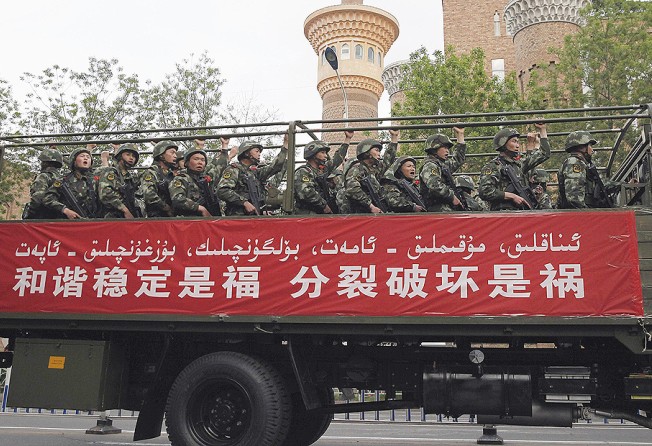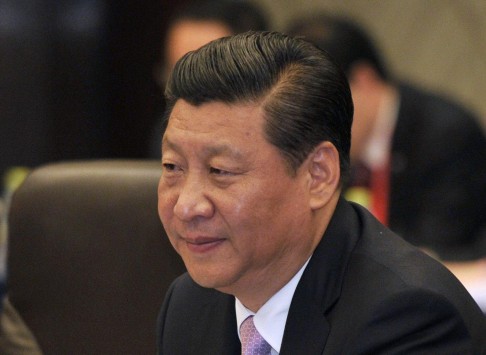Politburo pushes for ethnic unity in restive Xinjiang in wake of terror attacks
Emphasis is placed on bilingual education and employment to achieve 'long-term peace'

National solidarity would be achieved in Xinjiang by promoting bilingual education, "patriotic religious practices" and interaction between ethnic groups, the Politburo said after a meeting yesterday.
It called for "religious harmony and elimination of extremism", according to a statement released by Xinhua.
Employment would also be a priority, with the goal of ensuring that at least one person in each family has a job. And education levels of all schools across Xinjiang would be enhanced.
There should be more construction projects and greater development of natural resources for the benefit of locals.
The emphasis on education marks a shift of focus from November's Politburo meeting, which emphasised security, and sets the tone for a conference on Xinjiang next month, the first under President Xi Jinping's rule.
The statement after the meeting in Beijing, chaired by Xi, said the goal was to achieve "long-term peace" and "ethnic unity" by cracking down on terrorists and religious extremists.
Xinjiang had good momentum for development and overall society was stable, indicating the central government's policy was "completely accurate".
But the war on separatists was long term, complicated and urgent. The statement said: "[We must] take the severe crackdown on terrorism as the focus of the current war and curb the spread of terrorist attacks and the filtration of extreme religious powers.
"[We must] be confident about our victory and be prepared for the long-term battle and soundly carry out work to maintain Xinjiang's long-term stability."
The crackdown on extremists would be maintained to prevent terrorist attacks spreading.
Jiang Zhaoyong, a Beijing-based expert on ethnic issues, said the government was addressing a long-standing problem by focusing on education.
"Learning Chinese is not only a tool and skill to survive in China, it also opens the door to embrace Chinese culture, which has long been a weak link as many young Uygurs do not know the language. As a result they shut themselves off from Chinese culture and embrace extreme religion."
Xinjiang detained more than 200 suspects allegedly involved in terrorist activities this month. They were mostly people born in the 1980s and 1990s.
At the last Xinjiang work conference four years ago - held months after violence between Han Chinese and Uygurs in Urumqi left 200 dead - a strategy for long-term development and stability was deployed.
Beijing faces a daunting task in fighting violence in Xinjiang and other parts of the country carried out by what the authorities describe as Xinjiang separatists and religious extremists.
Last week, two SUVs were driven into a market in Urumqi and explosives were flung out of the vehicles, killing 39 civilians and injuring more than 90.
The market attack came less than a month after an explosion at a train station in Urumqi killed three people and wounded 79, just after Xi concluded a visit to Xinjiang. A month earlier, eight Uygurs with knives killed 29 at a Kunming train station.
State media said on Friday that the Xinjiang authorities had launched a "one-year campaign against terrorist violence".
